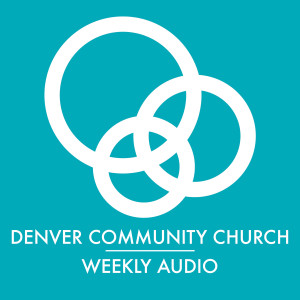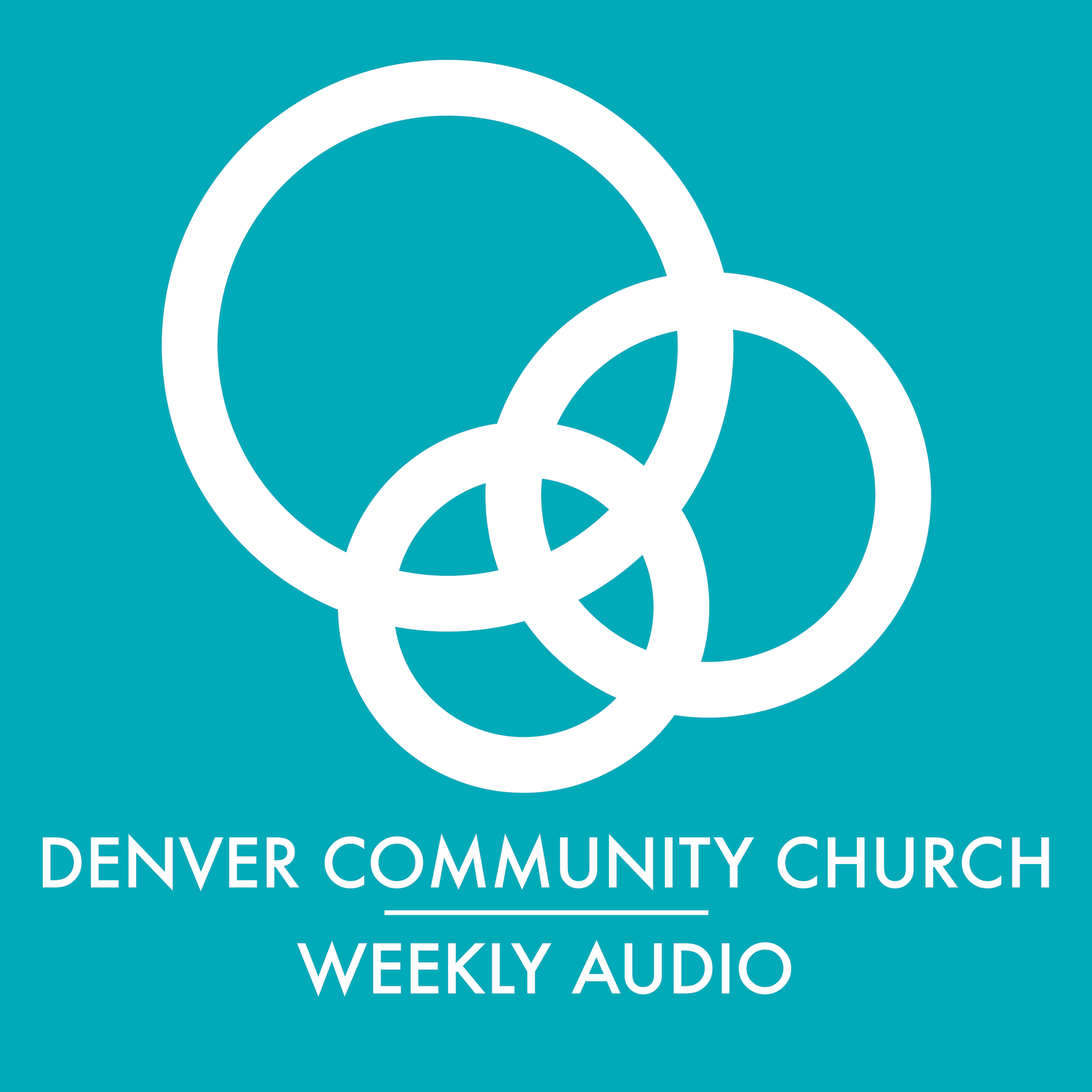Episodes

Sunday Jun 30, 2013
June 30, 2013: Study – Michael Hidalgo
Sunday Jun 30, 2013
Sunday Jun 30, 2013
“I just want to hear what the Bible says.” This is fairly common refrain from people who have spent many years in the Church when speaking about the teachers and preachers who are part of the community. But, who dictates what the “Bible says.”
A particular tradition? A person? Anyone? Our experiences? And what we do then with who understand the text differently than us, but still love Jesus? And what about those who leave out massive parts of Scripture and therefore reach different conclusions? Can anyone really study the Bible with any certainty?
Study, in an of itself is good and necessary. But we also must remember that the Bible is a vehicle through which the Holy Spirit speaks. And the Spirit of God is like the wind. It blows where it pleases. God’s Spirit is also breath – it gives life. And this word is living and active. Which means we can’t always make it say what we want, but we can be confident that the Scripture will give life.

Sunday Jun 23, 2013
June 23, 2013: Worship – Michael Hidalgo
Sunday Jun 23, 2013
Sunday Jun 23, 2013
In churches throughout the world we speak of worship, we hire worship pastors and believe that we gather together for worship. If this is the case, then why is it that so often we find that when asked about the two or three most earth shattering, significant moments in the life of a person with regard to God happen outside the context of a church service?
We hear all sorts of things: being in nature, a conversation with a friend, a concert, the birth of a child, the still small voice that shows up in silence. What happens then? We try hard to create a space where people can meet Jesus, but more often it seems we bump into him.
Worship, then, isn’t coming in and getting out of the world to a place where God uniquely is. Worship is our growing awareness of God’s presence in all of life – seeing him everywhere. And living with awe and wonder of the God who is not just here, but there and there and there. Worship is our response to divine activity.

Sunday Jun 16, 2013
June 16, 2013: Confession – Michael Hidalgo
Sunday Jun 16, 2013
Sunday Jun 16, 2013
Confession is to say what is true about you. It is saying, “I lied.” “I cheated.” It is saying, “I believe in God the Father, maker of heaven and earth.” That’s what confession is. So why in the world is it so hard to confess anything? Why is it so hard to talk about what is true about you?
Maybe it’s because we really know what’s inside - we really know what we think, feel, did, or said - and we can’t talk about it because we don’t want anyone to know. We don’t want anyone to know because of what they might think of us, do to us, or say about us when we are around. And we know what they might think, do or say because we have seen what happens to other people when they confess. They become the object of scorn.
So we bury it. But the truth is still in there. So we live in captivity to lies. The reality is the truth needs to be stated fully and clearly if we are ever to move forward in our lives and toward deeper intimacy with God and others. If this is the case, then truth (which includes confession) should always be celebrated – even if the truth brings pain.

Sunday Jun 09, 2013

Sunday Jun 02, 2013
June 2, 2013: Solitude – Michael Hidalgo
Sunday Jun 02, 2013
Sunday Jun 02, 2013
The biggest problem with solitude is that most of us don’t like to be with people we do not love. And the biggest, unaddressed sin in the church is the sin of self-hatred. We must learn to see ourselves the way that God sees us. As difficult as this is, it’s the very thing that will give us the courage to be alone – with ourselves and with God. When we practice solitude we tap into the presence of God in a way that nothing else can.

Sunday May 26, 2013
May 26, 2013: Service – Michael Hidalgo
Sunday May 26, 2013
Sunday May 26, 2013
When we serve others, we use what we have been given – in resources and talents – to actively seek the highest, common good of others and the causes of God in our world. Serving, as a discipline, is a way for us to teach ourselves to stay away from arrogance, possessiveness, envy, resentment, or covetousness. When it is done this way it is done as a discipline. This is an important distinction to make in our world today.
In the last decade, justice, advocacy, protest and the like have become rather sexy. To serve the poor has become the place of rock stars and celebrities. What once used to be repulsive – serving the least of these – has become decidedly glamorous. While we need not throw stones at the celebrities for their insistence that we join them, we must pause and look at ourselves. For much of what is passed off as service these days comes with a minimal price. It’s easy. We can wear a t-shirt, sign an online petition or go to a benefit concert. But Paul said our attitude of mind should be like Jesus … who was willing to give his life to serve all.

Sunday May 19, 2013
May 19, 2013: Fasting – Dave Neuhausel
Sunday May 19, 2013
Sunday May 19, 2013
We live in a culture of excess and wanton waste. If we want it buy it. And if you can’t afford it, charge it. We want more, we want bigger, we want newer, we want better … we want, we want, we want. Fasting, seems to work against this. But what if, fasting is not abstaining from our desires, but pursuing them with greater clarity?
When we give some things up, it produces in us the ability to understand our desires better. When we are without something, we then have the ability to know what we really need and what we really want. This is what the pious have known for years. They did not abstain from things because that is somehow “spiritual.” Nor did they abstain, because their desires were wrong. They abstained, because it allowed them to see their desires more clearly.

Sunday May 12, 2013
May 12, 2013: Simplicity – Michael Hidalgo
Sunday May 12, 2013
Sunday May 12, 2013
God is the giver of all good things. Which means the things we have are not really ours. We don’t earn anything – it’s a gift. All of it. So why do we have such a hard time giving? Because we have a dim view of ownership. What we need is not more guilt, or to see the needs of others. Anyone will give if we pour out enough guilt … but God loves cheerful givers. And what makes us more cheerful than receiving a gift.
You see, our joy comes in first learning how to receive from God. It means cleansing the lens of how we understand possessions, finances, talents and resources. When we understand this, we are then freed to share with any and all who have need. What if we did this? How much more joy would there be in our world?

Sunday May 05, 2013
May 5, 2013: Prayer – Michael Hidalgo
Sunday May 05, 2013
Sunday May 05, 2013
Is prayer something we schedule? Is it something we do all the time? Do I write stuff down or read stuff other people wrote down? One thing is for sure – these and more questions seem to surface whenever we talk about prayer. So what exactly is prayer?
Prayer is the shifting of our lives away from self-centeredness to the place of self-surrender. It is a way for us to take on the mind and heart of Jesus by sharing with him and allowing him to share with us. It is a conversation, not a monologue. So how do we share? How do we hear? Well, by praying – which is an exercise of our heart. We don’t need words.

Sunday Apr 28, 2013
April 28, 2013: What Was I Supposed to Remember? – Michael Hidalgo
Sunday Apr 28, 2013
Sunday Apr 28, 2013
The number one command in all of Torah is, “Remember.” Why is God so intent on people remembering who he is and what he has done? What does it mean to remember and how do we do it? Too often we are guilty of doing the opposite – we forget. But there are ways we can remember that go far beyond memory, but are a way of participating with God in what he is doing in this world.

